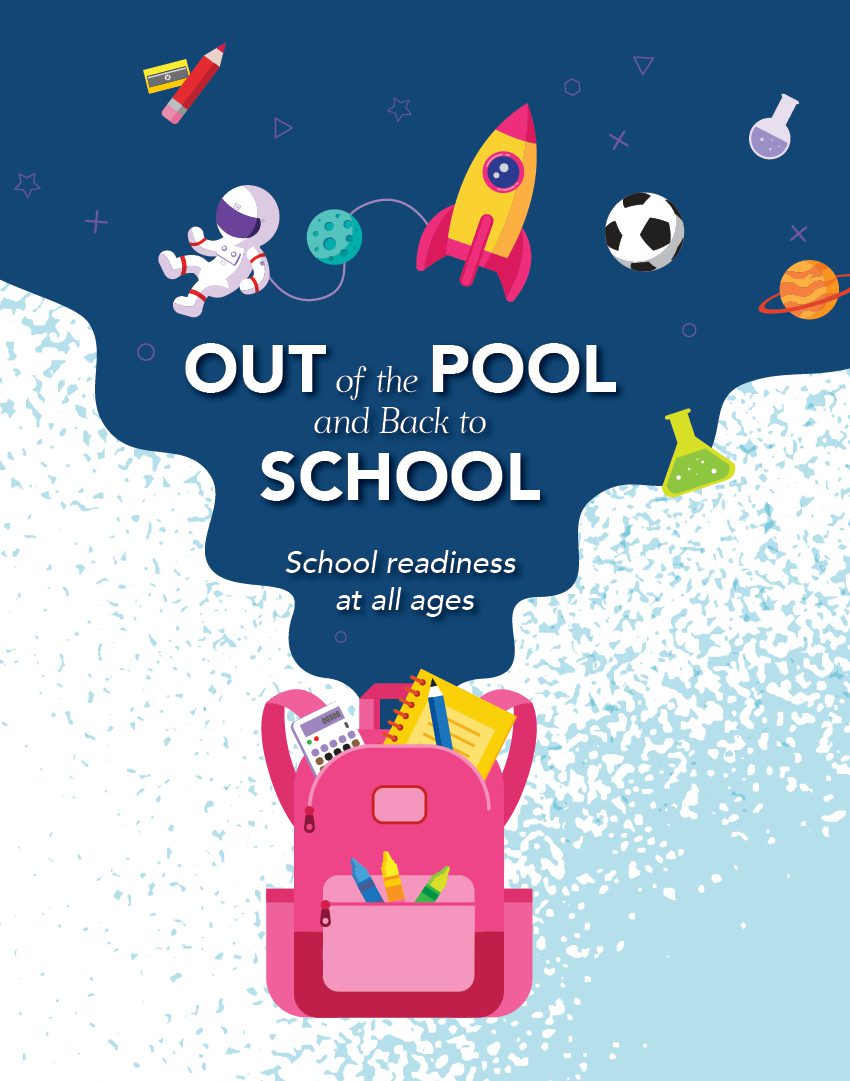Getting off the summer slide and getting the brain ready for the academic prowess of school is an important part of July. Celebrating the July 4th holiday, then beginning to purchase school clothes, backpacks and supplies consumes our time and minds. But backing away from the brain drain of summer means more than just gearing up with supplies. It means that the brain must be made ready once again for a fantastic year of learning. Here are a few tips to avoid the dread of another school year and instead get the brain in gear for a great start to a fantastic year.
1. Cognitive skills & fitness
Working memory is the biggest predictor of school success. Recent research has shown us that in order for a student to have the largest success in academic skills, the students must have cognitive flexibility, which requires adequate working memory. What kind of memory? Working memory… that is the amount of memory your brain has to keep multiple thought processes occurring somewhat simultaneously. I say somewhat because the brain can truly only perform one thing at a time, but the efficiency of task switching relies on the short-term memory and the working memory. When working memory is in high demand but not enough of it available, the brain simply cannot remember multiple steps or directions and confusion or complete shutdown occurs. There are several ways to enhance this type of memory, but each of these requires deliberate intervention. One, a person can enroll in a cognitive fitness intervention program such as that offered at LearningRx, which personalizes the fitness workouts to the needs of the client. Two, a person can do online games such as Brain apps and games with a purposeful and meaningful approach spending time each day doing these. Three, a person can choose to play memory games such as board games like 5 Second Rule or Scattergories daily. Fourth, one can choose to do recall activities, such as remembering what is in the refrigerator or on a particular shelf. Knowing the strength or weakness of this skill and deliberately enhancing it can make all the difference to a year of success. Being cognitively fit means that the student struggles less to learn even if the instruction is hard to understand. Cognitive fitness can be the key to opening up doors to the students’ futures.
2. Grit & fortitude
Grit is one of the biggest determiners of completion of a task or goal. Grit means that the person perseveres no matter what is thrown their way and this is a trained skill. The difference in grit and fortitude is important to recognize. Fortitude is defined as mental or emotional strength that enables courage in the face of adversity while grit is defined as firmness of mind, invincible spirit, courage or fearlessness. Fortitude comes naturally to some and others struggle in the face of adversity, but grit can give one fortitude. As brain trainers at LearningRx, one of the biggest factors is training the students to persevere under the pressure, learning to manage stress by letting the pressure become a source of fortitude rather than a weight. Ways to enhance this in your child is simply letting them become bored and learning to do something with that. Let them struggle through a situation or hard place by encouraging them that they can do it if they will persevere and that you are there with them. Reminding them that at 211 degrees, water is just really hot. But one degree more of effort and the water boils, which means it takes off into the air as steam…it transcends the current uncomfortable place to become more.
3. Mindset & motivation
Growth mindset is the most powerful source of motivation as it allows the person to see the potential of what can be. Encouraging growth mindset is an everyday activity. It requires the restati ng of the I can’t to the I can if I give it another try and if that fails, then one more time. One of my students came in saying this is impossible and he learned quickly that there is no such thing. Eating an elephant starts with one bite at a time. He quickly changed to saying this is hard but it isn’t impossible and this has helped him strive this past year to be on the honor roll despite his struggles in learning in the past. Understanding that change comes because I make it happen rather than change comes and takes me along for the ride is the key to unlocking growth mindset. There is a terrific resource for this at BigLifeJournal.com. The Resilience Packet or the Growth Mindset packets are well worth the investment for your child or grandchild.
4. Nutrition & hydration
Never can enough be said about hydration for the brain and nutrition for the body which affect the brain. 85% of Americans do not get enough magnesium into their diet to keep their brain function at capacity of growth and 80% of Americans hydrate incorrectly. Each morning, before anything else, every child should have a glass of water. The brain and body become dehydrated overnight. How can the brain function without fuel? Put a bottle of water on your child’s nightstand and teach them to drink it as soon as they wake up. This will help with short-term memory. Get a baggie of mixed nuts and super fruits to snack on throughout the day, which will help with the magnesium benefits and end the day with an Epsom salt bath especially for those in sports as this will help with muscle cramping too.
5. Sleep & rest
There is a huge difference in sleep and rest. Sleep should be restful but not all rest is sleep. Sleep should be 8-10 hours for the teen to child ratio. Too many Americans especially young ones are suffering with too little sleep due to technology. No streaming videos, gaming, TV or tablets at least 1 hour prior to bed! The brain cannot fall into proper REM sleep until it processes all of the information seen and taken in so if your child is going to sleep to TV or videos then their sleep pattern is being interrupted. Remember to limit the daily intake of technology to 10 minutes times the age of the child…that’s correct…none for those under 1 and that toddler should not be walking around with a tablet or consuming TV hours at a time. Rest is critical for the brain and this is important to the overall health. Rest means no stimulating brain activity and that includes vegging out to TV. The brain needs to rest at least 15 minutes per hour in order to function well. So that means that for each hour of activity, the brain needs a few minutes to decompress…I know that schools don’t often provide this time but teach your child to find it when they can. A moment of prayer or meditation can have the same effect, so teach them deep breathing and restful mindfulness.
For now, it’s a few more weeks until school, so take the time to incorporate these habits above into a cognitive fitness lifestyle. Take some time to rest by that pool and do some brain games. Enjoy the times with friends and family. Snack on some nuts and take a hot salt bath. Go get a massage and enjoy some random, boring down time so that your brain can come to the best year ever!
Donesa Walker, M.Ed., is the owner of LearningRx and Brain Train Learning Solutions








